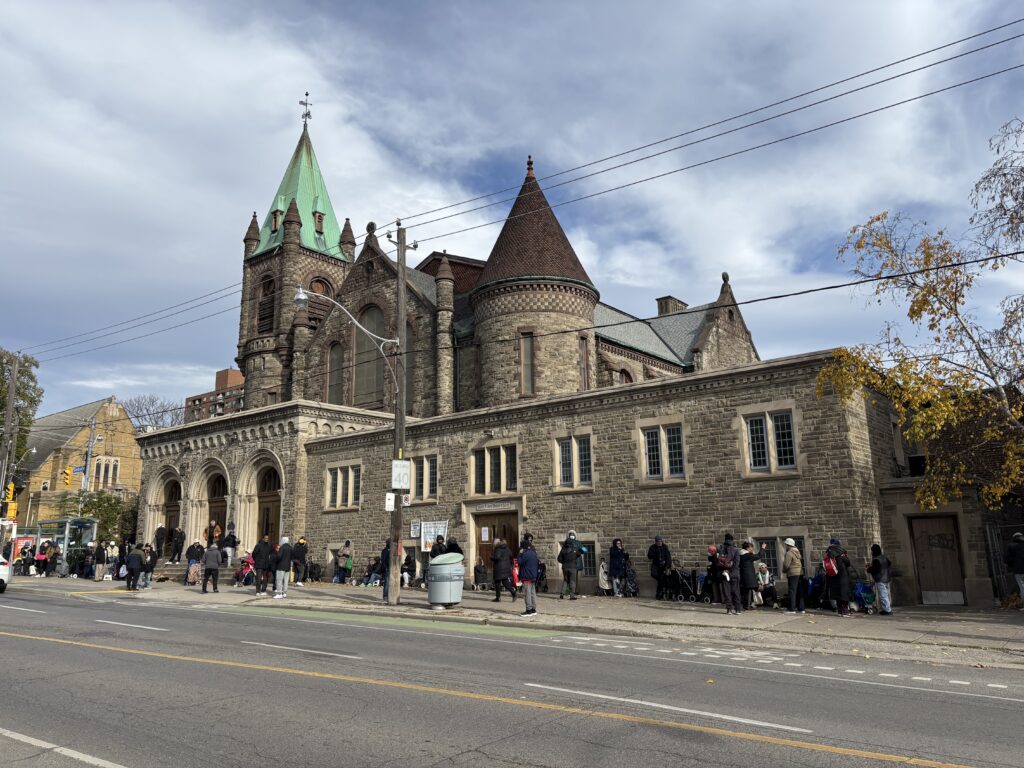
Despite a recent bump in minimum wage and slight slowdown in inflation, reports show food bank usage in Canada has hit an all-time high.
According to data from HungerCount 2024, released by Food Banks Canada in late October, March 2024 saw over two million visits across the country — the highest number of visits ever recorded for a single month. This shows an increase of 6 per cent compared to last year, and a nearly 90 per cent surge from 2019.
In the past year alone, Toronto has been hit particularly hard with more than 3.49 million residents relying on food banks, according to Daily Bread Food Bank’s Who’s Hungry 2024 report, which released last Tuesday.
“We try our best,” said Meryl Wharton, president of the Allan Gardens Food Bank in Toronto.
“We do not know how long we can keep on doing this, because every week we have new clients — every week.”
At Wharton’s food bank, she says demand has more than doubled over the past three years.
In 2021, they served 26,667 clients, which grew to a staggering 53,893 by 2023. As of mid-October this year, Allan Gardens Food Bank says it has already helped over 52,000 individuals, averaging over 5,000 people per month.
“It’s a mixture of all different nationalities of people,” Wharton said.
“We have 100 people going through the line in an hour. Think about that.”
Daily Bread Food Bank collaborates with Wharton and over 200 other food programs across the city to provide fresh, shelf-stable food items and prepared meals. CEO Neil Hetherington says that an average of 12,000 to 14,000 new clients are registering for support each month.
He says the city’s housing and affordability crisis is a key factor driving food insecurity.
“People who do have to move in Toronto face enormous increases in what they are paying on a monthly basis,” said Hetherington. “Food insecurity is a symptom of lack of income… We just don’t have the incomes to support decent, affordable housing, as well as the necessities. That’s why people are turning to food banks.”
The Consumer Price Index (CPI) released for September 2024 showed a 1.6 per cent inflation increase, down from 2 per cent in August. However, the overall cost of living remains high, with prices increasing 12.7 per cent in the last three years. Similarly, during that time, rent has risen by 21 per cent, and groceries are now 20.7 per cent more expensive.
The Daily Bread’s spending on food has jumped from $1.5 million annually in 2020 to $29 million in 2024.
Both Wharton and Hetherington are calling for action from officials to address the root causes of food insecurity.
“We provided all three levels of government with the statistics and the stories, and now it’s their turn to respond with policy initiatives that will alleviate the suffering that so many have,” Hetherington said.
The Canada Disability Benefit, set to launch in July 2025, aims to provide $200 per month to low-income Canadians with disabilities. Hetherington called it a step in the right direction, but he said the benefit remains “narrow in scope” and “limited in breadth.”
“For the first time, year over year, the provincial government increased disability payments by at least inflationary numbers, so that’s positive, but they’re still so far underwater,” he said.
Wharton sees that first hand at the Allan Gardens Food Bank, which receives daily shipments from Daily Bread on the two days a week they’re open.
The food disappears quickly, she said. “If we get seven skids of food on Thursday, it finishes at the ending of Thursday… and we get another shipment on Friday, and by Friday afternoon, everything is gone,” she said.
Nicole reported for On The Record in F2024.
This article may have been created with the use of AI tools such as Google Docs, Grammarly, and/or Otter.ai for transcription.
